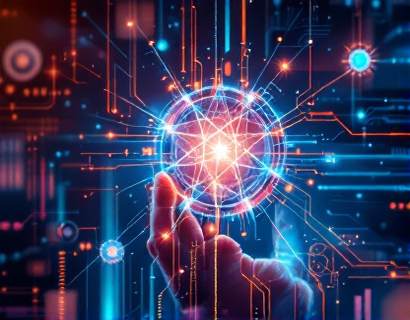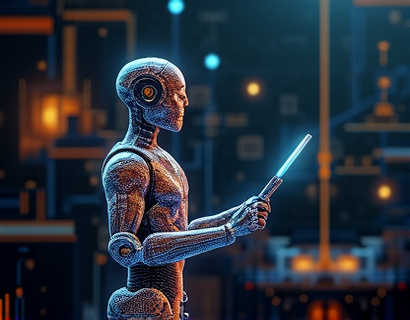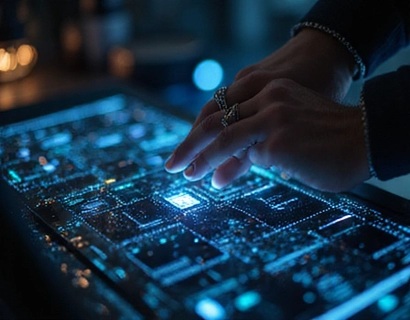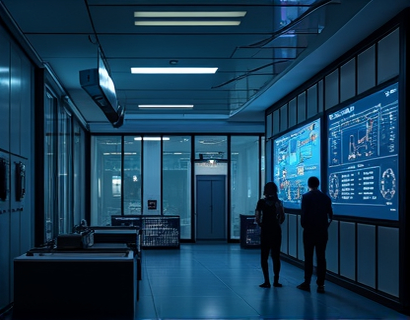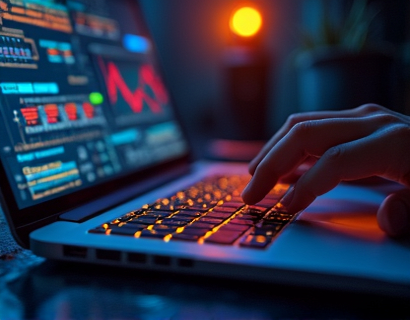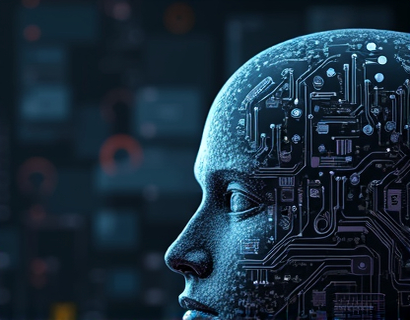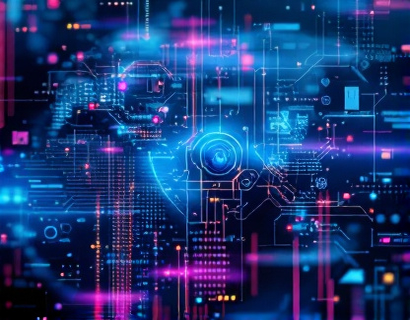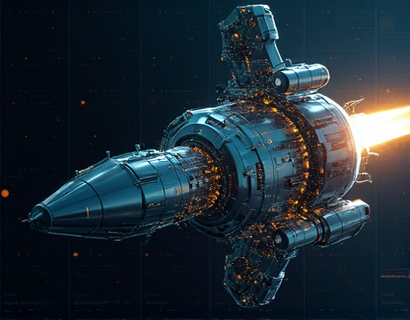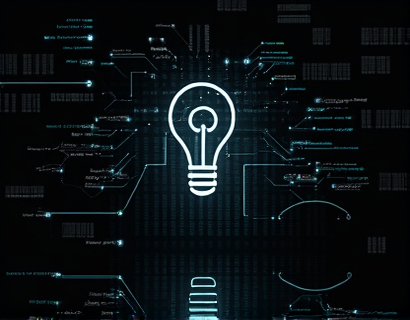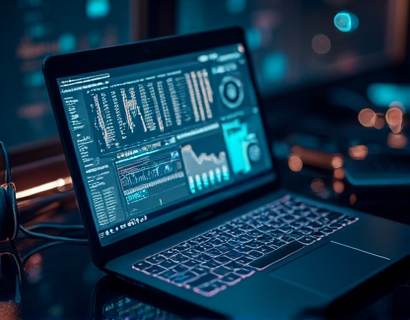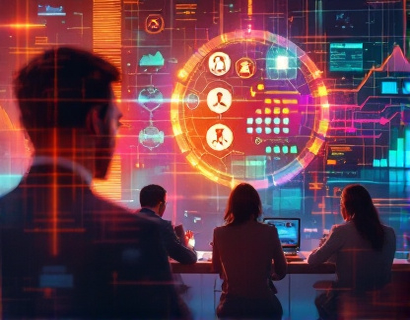AI and Crypto Synergy: Unlocking Advanced Digital Ecosystems
The intersection of Artificial Intelligence (AI) and cryptocurrency is giving rise to a new era of digital ecosystems, where innovation and connectivity are reaching unprecedented levels. This synergy is not just a technological curiosity but a transformative force that is redefining how we interact with digital assets and services. For tech-savvy innovators, this fusion offers a wealth of opportunities to enhance their digital experiences and explore the frontiers of what is possible in the crypto space.
The integration of AI into the crypto landscape is multifaceted, impacting everything from security and scalability to user experience and market analysis. By leveraging AI, developers and entrepreneurs can create more robust, efficient, and user-friendly crypto applications and services. This article delves into the advanced technologies and innovative strategies that are shaping this new digital paradigm, providing insights and tools for those looking to stay ahead in the rapidly evolving crypto ecosystem.
Enhanced Security Through AI
One of the most significant benefits of AI in the crypto space is the enhancement of security measures. Cryptocurrencies, by their nature, are vulnerable to various types of attacks, including hacking, phishing, and smart contract vulnerabilities. AI can play a crucial role in mitigating these risks by providing advanced threat detection and response systems.
Machine learning algorithms can analyze vast amounts of data to identify patterns and anomalies that may indicate a security breach. These systems can continuously monitor transactions and network activity, flagging suspicious behavior in real-time. For instance, AI-driven security solutions can detect and prevent fraudulent transactions by analyzing user behavior and transaction history, thereby reducing the risk of unauthorized access and financial losses.
Moreover, AI can improve the security of smart contracts, which are self-executing contracts with the terms directly written into code. By using formal verification techniques and AI-based testing, developers can identify and rectify potential vulnerabilities before deployment. This ensures that smart contracts operate as intended, reducing the risk of exploits and enhancing overall system integrity.
Optimized Scalability with AI
Scalability remains a critical challenge for many blockchain platforms. The limited transaction throughput and high transaction fees can hinder widespread adoption. AI offers innovative solutions to address these issues, enabling more efficient and scalable crypto ecosystems.
One approach is the use of AI to optimize blockchain consensus mechanisms. Traditional consensus algorithms like Proof of Work (PoW) are energy-intensive and slow, whereas AI can help develop more efficient algorithms like Proof of Stake (PoS) or Delegated Proof of Stake (DPoS). AI can analyze network conditions and dynamically adjust parameters to optimize performance and resource utilization.
Another strategy is the implementation of AI-driven sharding techniques. Sharding involves dividing the blockchain into smaller, more manageable parts, each handling a subset of transactions. AI can intelligently manage the distribution of shards, ensuring balanced load and minimizing bottlenecks. This not only increases transaction throughput but also reduces latency, making the network more user-friendly and accessible.
Personalized User Experiences
The integration of AI in crypto applications can significantly enhance user experiences by providing personalized and intuitive interactions. AI-powered chatbots and virtual assistants can offer 24/7 customer support, answering queries, guiding users through complex processes, and providing real-time insights into market trends.
Personalization extends to the recommendation systems that suggest crypto assets, trading strategies, and investment opportunities based on user preferences and behavior. By analyzing user data, AI can identify patterns and make tailored recommendations, helping users make more informed decisions and potentially improving their investment outcomes.
Furthermore, AI can enhance the user interface and experience (UI/UX) of crypto platforms. Machine learning algorithms can adapt the interface to individual user preferences, ensuring a seamless and intuitive experience. This includes dynamic layout adjustments, personalized dashboards, and streamlined navigation, all of which contribute to a more engaging and user-friendly environment.
Intelligent Market Analysis and Predictions
Market analysis is a critical component of successful crypto investing. AI can revolutionize this process by providing advanced analytics and predictive insights. By processing and analyzing vast amounts of data from various sources, including social media, news feeds, and market trends, AI can identify key factors that influence crypto asset prices.
Techniques such as natural language processing (NLP) and sentiment analysis can gauge market sentiment by examining social media conversations and news articles. This information can be used to predict price movements and identify potential trading opportunities. AI-driven trading bots can execute trades based on these insights, executing strategies with precision and speed that human traders may not match.
Additionally, AI can help in risk management by providing real-time market monitoring and alert systems. These systems can detect sudden market shifts and notify users, allowing them to take timely actions to protect their investments. By combining historical data with real-time analytics, AI can offer a comprehensive view of the market, empowering users to make more informed decisions.
Decentralized AI Applications
The synergy between AI and cryptocurrency extends to the development of decentralized AI applications, often referred to as DeFi (Decentralized Finance) and DAO (Decentralized Autonomous Organizations) integrations. These applications leverage blockchain technology to create transparent, secure, and community-driven AI systems.
Decentralized AI models can be trained on data stored on the blockchain, ensuring data ownership and privacy. This approach eliminates the need for centralized data repositories, reducing the risk of data breaches and misuse. Smart contracts can automate the training and deployment of AI models, ensuring that they operate transparently and fairly.
DAOs can also play a significant role in the governance of AI systems within the crypto ecosystem. By allowing community members to vote on key decisions, DAOs can ensure that AI developments align with the collective interests of the user base. This decentralized governance model fosters innovation and accountability, creating a more resilient and trustworthy digital environment.
Future Prospects and Challenges
The potential of AI and crypto synergy is vast, but it also comes with challenges that need to be addressed. One of the primary concerns is the regulatory landscape. As AI and cryptocurrency continue to evolve, regulators are grappling with how to oversee these technologies to prevent misuse and ensure consumer protection. Innovators must stay informed about regulatory developments and design systems that comply with existing and emerging regulations.
Another challenge is the technical complexity involved in integrating AI with blockchain technology. Developing robust and scalable solutions requires expertise in both domains, and there is a need for more interdisciplinary collaboration. Educational initiatives and community-driven projects can help bridge this gap, fostering a more skilled and knowledgeable developer base.
Privacy is another critical issue. While AI can enhance security and personalization, it also raises concerns about data privacy and surveillance. Developers must prioritize privacy-preserving techniques, such as zero-knowledge proofs and homomorphic encryption, to ensure that user data is protected and used ethically.
Conclusion
The fusion of AI and cryptocurrency is ushering in a new era of digital innovation, offering transformative possibilities for tech-savvy innovators. By enhancing security, optimizing scalability, personalizing user experiences, and enabling intelligent market analysis, this synergy is redefining the crypto landscape. As the technology matures, the potential for decentralized AI applications and community-driven governance models will further elevate the digital ecosystem.
For those looking to harness the power of AI and crypto, the key is to stay informed, embrace interdisciplinary collaboration, and prioritize ethical and privacy-conscious development practices. By doing so, innovators can unlock advanced digital ecosystems that not only enhance their current offerings but also pave the way for a more connected and intelligent future.



